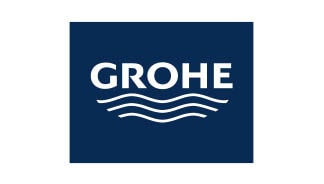Published on
September 17th, 2020Thermostatic Valve vs. Pressure-Balance Valve: What’s the Difference and What Are the Pros and Cons of Each?
If you’re upgrading or renovating a bathroom in your New York City property, you will have choices to make about various fixtures. When replacing plumbing in the shower, for example, you may be asked if you prefer a thermostatic valve vs. a pressure-balance model. If that’s Greek to you, here’s a look at both types so you can make your selection based on knowledge about their function and their pros and cons.
What Is a Pressure-Balance Valve?
A step up from two handles
A pressure-balance valve senses the pressure ratio of hot and cold water coming from a fixture to keep the temperature constant. You’ve probably used this type of shower valve thousands of times.
It’s used in showers with just one handle and was touted as a huge improvement when compared to old-fashioned, two-handled shower taps. Not only does this type of valve make showering more convenient, but it also prevents users from being subjected to freezing or scalding water if someone nearby flushes a toilet or turns on a sink.
Pros
A pressure-balance valve protects shower users from aggravating or even dangerous fluctuations in water temperature and prevents changes of more than about three degrees Fahrenheit. You can set a maximum temperature at the time of installation, which means you can keep your hot water tank hot enough to discourage bacterial growth, such as Legionella, without worrying about scalding in the shower.
The simple single handle makes this type of valve a good choice for use by families with children or by seniors. A pressure-balance valve is also much less expensive than its thermostatic competitor, which may be significant if you are renovating bathrooms in multiple apartment units.
Cons
The biggest disadvantage to using a pressure-balance valve is that temperature and volume go hand in hand. It is impossible to, say, run hot water at a very low flow, which might be desirable for shaving in the shower. Additionally, users may have to fiddle with the handle to get the temperature they like, so it’s not a typical choice for luxury baths.
What Is a Thermostatic Valve?
Controls water temperature
In contrast, a thermostatic valve actually controls the temperature of the water itself. It also maintains a constant temperature like a pressure-balance valve does. With this type of setup, there are two handles, one for the water volume and one for the temperature.
Pros
The greatest advantage of a thermostatic shower valve is that users can achieve more subtle control over temperature and volume, as these two elements work independently of each other. This not only makes showering a more pleasant experience, but it can also help with water conservation.
Because you set the water temperature with a thermostatic valve, and it in turn controls the water temperature directly, there are no small variations in temperature, which is what you would get with a pressure-balance valve. You preset the temperature and know it will remain exactly the same throughout the length of any shower. Once you know where you like your setting, you can leave it at that temperature, and simply adjust the volume between one shower and the next.
Another pro to the thermostatic valve is that you can use it with multiple heads in one shower, which you cannot do with a pressure-balance valve. When using more than one shower head, they all maintain water at the same temperature, but individual users can control their own volume.
Cons
By far, the biggest con to installing a thermostatic shower valve is the cost. These valves tend to be at least twice as expensive, if not many times more, as pressure-balance valves.
Another disadvantage is the trim that accompanies this type of valve because it has two handles. These can be trickier to install with simple plumbing upgrades because they use a wall-mounted plate behind the handles. They tend to come in contemporary designs, although it is possible to find models that work with more traditional bathroom decor.
Call Sanitary Plumbing for Your Shower Upgrade or Renovation
Hyper-local blue chip plumbing
Are you thinking of upgrading or renovating showers in your property? Make sure the job is done right. Call Sanitary Plumbing at 212-734-5000, or use our easy online form to schedule an appointment. We can answer all your questions, give you a fast work estimate, and help you solve the thermostatic valve vs. pressure-balance valve dilemma so you choose the option that serves your unique needs.








